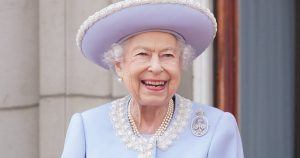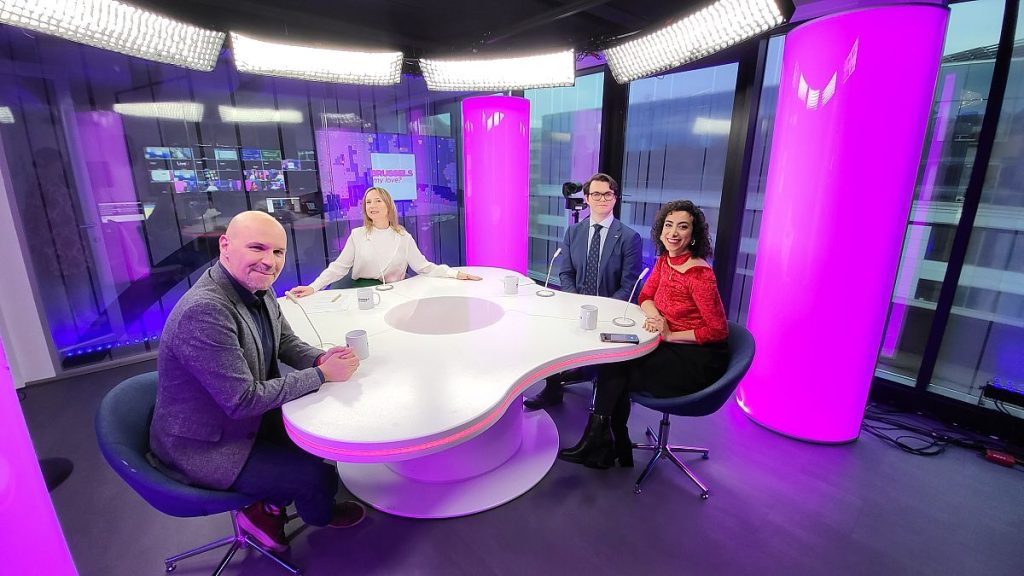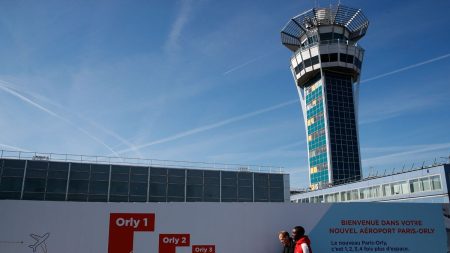This edition of “Brussels, my love?” delves into the complex relationship between social media, politics, and the dissemination of information, focusing specifically on TikTok’s potential influence on the Romanian presidential elections and the broader debate surrounding youth access to social media platforms. The unexpected surge of Călin Georgescu, a relatively unknown populist candidate, in the first round of the Romanian presidential elections sparked concerns and discussions about the role of TikTok’s algorithms in amplifying his message and potentially swaying voter preferences. The program explored accusations of Russian bot activity contributing to Georgescu’s online popularity, while also examining the contrasting perspectives on TikTok’s influence and its potential as a tool for political engagement.
The discussion featured a panel of experts, including Petros Fassoulas, Secretary General of European Movement, TikTok influencer Soundous Boualam, and Robert Taylor from New Direction. Boualam, a prominent figure on TikTok, defended the platform, emphasizing its ability to promote positive content and attributing Georgescu’s success to his effective utilization of the platform’s features and his adoption of a “Western-friendly” image. She challenged the notion that TikTok is inherently problematic and questioned why more progressive politicians aren’t actively engaging with the platform to broaden their reach and disseminate their ideas. This perspective highlighted the potential for TikTok to serve as a valuable tool for political communication, enabling politicians to connect with a wider audience and engage in more direct dialogue with constituents.
Conversely, Robert Taylor expressed significant concerns about TikTok’s ownership by the Chinese company ByteDance, characterizing it as a platform designed to disseminate anti-Western disinformation. This perspective underscores the growing apprehension surrounding the potential for foreign influence through social media platforms, particularly those owned by companies based in countries with differing political ideologies. The discussion highlighted the ongoing debate about the potential for such platforms to be utilized for spreading propaganda and manipulating public opinion, raising questions about the responsibility of social media companies to ensure the integrity of the information shared on their platforms.
The conversation also extended to the broader landscape of social media, including the transformation of X (formerly Twitter) under Elon Musk’s ownership and the subsequent migration of users to alternative platforms like Bluesky. Boualam expressed concern that the exodus of pro-European voices from X was creating a vacuum, allowing far-right populists to amplify their messages and further expose vulnerable users to misinformation. This observation highlighted the complex dynamics of online communities and the potential for platform shifts to exacerbate existing echo chambers and ideological divisions.
Concerns were also raised about the tendency of individuals to seek out information that reinforces their existing beliefs, creating echo chambers that limit exposure to diverse perspectives. Taylor likened this phenomenon to the challenges faced by traditional media like television and radio, emphasizing the importance of critical media literacy and the need for individuals to actively engage with a wider range of viewpoints. This underscores the broader challenge of combating misinformation and promoting informed civic discourse in an increasingly fragmented media landscape. The panelists emphasized the need for media literacy education to empower individuals to critically evaluate the information they encounter online and make informed decisions.
The discussion ultimately highlighted the complex and multifaceted nature of social media’s influence on politics and public discourse. While platforms like TikTok offer potential for increased political engagement and the dissemination of diverse viewpoints, they also present challenges related to misinformation, foreign influence, and the formation of echo chambers. The program emphasized the need for ongoing dialogue and critical analysis to understand the evolving role of social media in shaping public opinion and its impact on democratic processes. It also underscored the importance of media literacy and critical thinking skills in navigating the complex online information environment and making informed choices as citizens.














